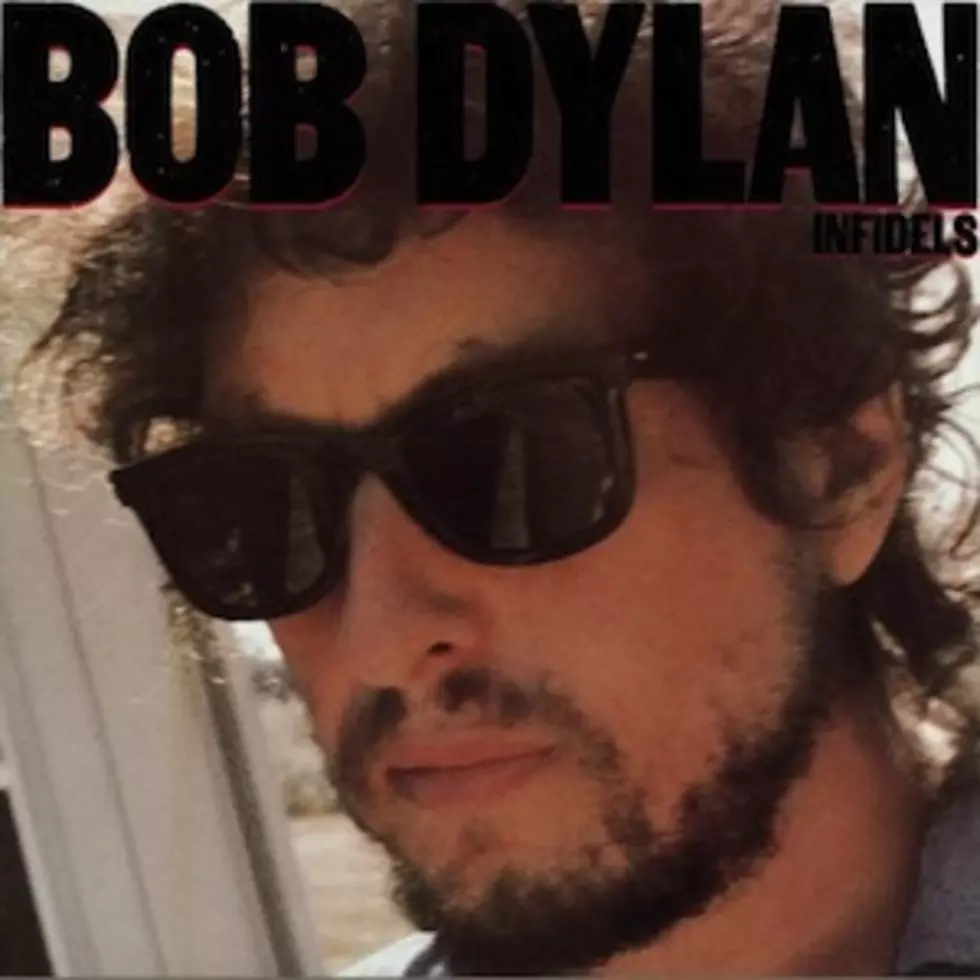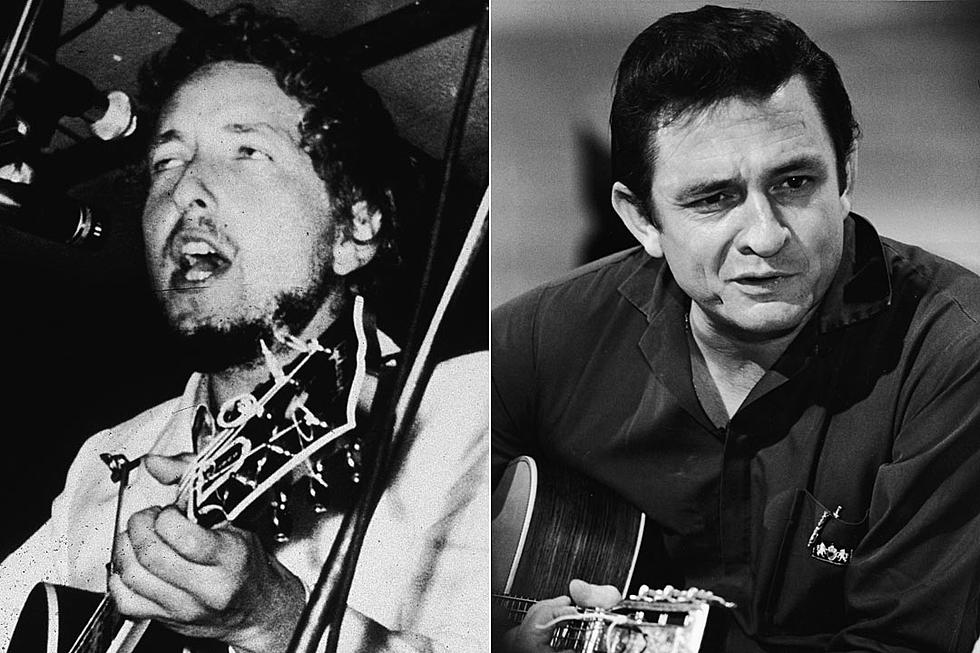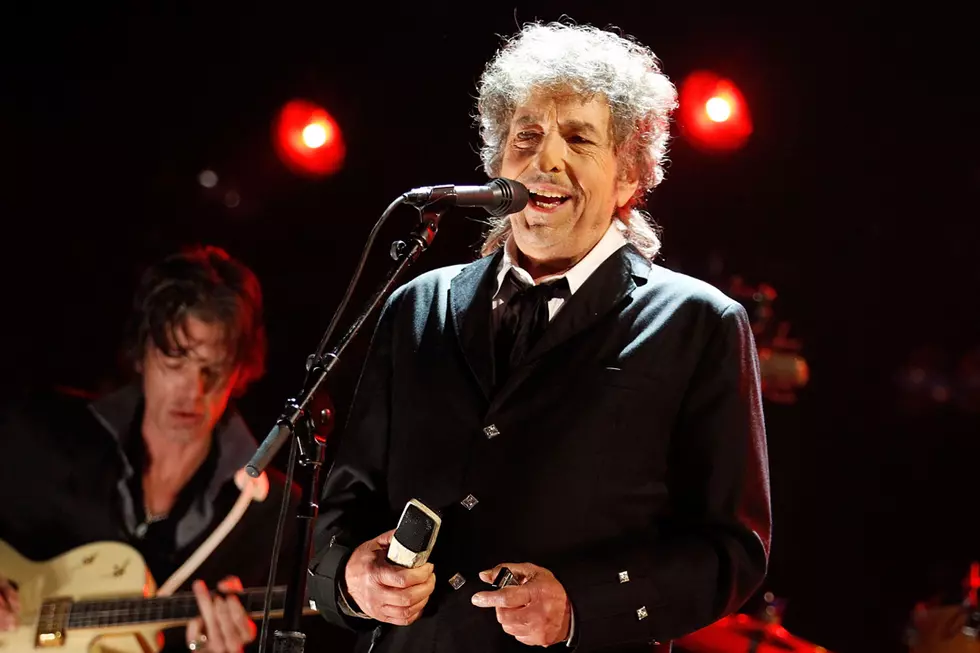
30 Years Ago: Bob Dylan Releases ‘Infidels’
An album heralded as a return from born-again proselytizing, the Mark Knopfler-produced 'Infidels' began Bob Dylan's journey back toward mainstream music making — and it may have been even better but for some last-minute tinkering.
Luckily, the final tracklisting included the stand-out track 'Jokerman,' which found Dylan using themes both Biblical and secular to tear down political charlatans. Or was it a dark reflection on Judaism? A rumination on false messiahs? A cutting indictment of his own career missteps? Such are the enduring mysteries of classic Dylan, the singer-songwriter’s wild card — making this the earliest indication of long-hoped-for bounce-back moment that would finally coalesce into the '90s.
Two key moments, however, were left on the cutting room floor as Dylan continued editing and re-recording 'Infidels,' long after Knopfler had left to pursue his own separate musical interests. The out-take 'Blind Willie McTell,' for instance, later gained a talismanic import among fans before finally appearing on 1991's 'The Bootleg Series Vol 1-3.' The sessions also included 'Foot of Pride,' an perfectly executed Dylan put-down about those trapped in ego. ('Someone's Got A Hold Of My Heart' was subsequently re-drafted for 1985's 'Empire Burlesque.')
In their place went 'Union Sundown,' a much lesser effort -- though still one that exhibited a tougher political bent than had a previous trio of faith-focused recordings dating back to 1979's 'Slow Train Coming.' The album also included 'Sweetheart Like You,' which was talking down to either a woman or else the wayward church; 'License to Kill,' which seemed to question the wisdom of space travel with so many unsolved issues down below; and the now-expected album-closing paean to a lover, 'Don't Fall Apart On Me Tonight.'
Each of them had a sleek approach that updated his sound without dismantling its foundational wit. Credit there goes to Knopfler, and an all-star cast that included Mick Taylor, Robbie Shakespeare and Sly Dunbar — the latter of whom give 'Jokerman' in particular a bouncy island feel. In manner and tone, that track connected back to the promise of Dylan's mid-1970s work, and gave us the first concrete hint at the third-act successes to come beginning with 1989's 'Oh Mercy.'
More From 1073 Popcrush










